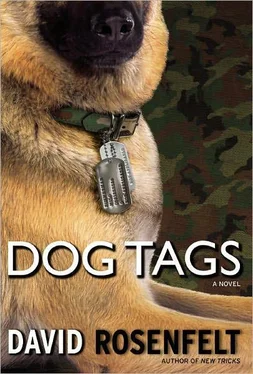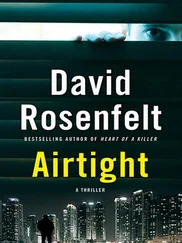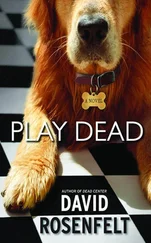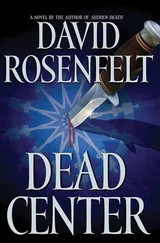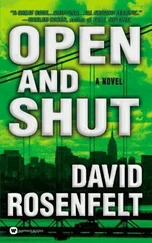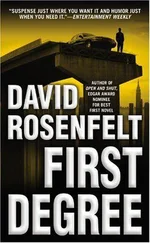“Where was the gun?”
“On the ground next to Mr. Erskine’s body.”
I’m wearing my most confused face. “About how long after the shooting did the police arrive?”
“Less than ten minutes.”
“And he just hung out waiting for you?”
“He was on the scene,” he repeats, making little effort to conceal his annoyance.
“So if I can sum up your testimony so far, your theory is that Mr. Zimmerman directed his dog to steal an envelope from the victim, which the dog did. Mr. Zimmerman then shot Mr. Erskine, after which he turned and tried to shoot his own dog, who had the envelope.
“Failing that, Mr. Zimmerman decided to hang out with the body until the police could get there to arrest him. Is that about it?”
Not surprisingly, Halicki argues with my version, and after a few minutes I move on.
“So let me try it another way. Here’s a hypothetical, based on your testimony. If another person were there, wrestling with Mr. Zimmerman for the gun, could that explain the strange residue pattern, the fact that a shot was taken at Milo, and the fact that the shot missed badly?”
“I’m not aware of any other man being present,” he says, which irritates me.
“Are you familiar with the concept of hypothetical questions?”
“Of course I am.”
“Great, then please answer the one I asked. Hypothetically, could the presence of another man, the shooter, have caused all these factors to occur?”
He’d love to avoid answering the question, but can’t figure out a way to do so. “It’s hypothetically possible,” he says.
“Glad to hear it.”
As soon as court is over I call Colonel Mickelson, and I’m put right through to him. It could be due to his continuing desire to suck up to Kevin’s brother-in-law, General Prentice, or it could be that he’s very interested in any developments in this case. Or both.
“Too bad about Santiago,” he says when I mention the murder.
I’m annoyed that an FBI agent and army investigator were at the scene to question Santiago, and I ask him if he had any part in it.
“Sure,” he says. “Captain Meade was there on my orders. But I can’t speak to the presence of the FBI agent.”
“You were interfering with my witness.”
“Back on the streets, I think the expression we would use as a response to that comment is ‘tough shit.’”
I don’t think I’ve fully intimidated him.
“You think our conversation was in confidence?” he asks. “What am I, your priest?”
“Santiago was—”
“Santiago was a soldier, and he was corrupt. And people died because of him, some of whom were in my command. Now, you may think I’m fine with that, and I’ll just back off and let you go about your business. But that’s not how the army operates; we take care of our own, and we deal with them when they need to be dealt with.”
“So Santiago is dead,” I say.
“That’s not my fault.”
“Somebody tipped the shooter off.”
“And when we find out who that was, they will be dealt with. But if you’re trying to find him in the army, you’re wasting your time.”
“Right, I forgot. Your men are pure as the driven snow. Erskine, and Chambers, and Lawson, and Iverson, and Greer, and Santiago, they were all choirboys.”
“You left out Zimmerman,” he says, a trace of amusement in his voice. My anger is having absolutely no impression on him.
“Billy Zimmerman is the only innocent one in the bunch.”
“So go into court and prove it.”
CHAPTER 64
KATHY BRYANT HAD HOPED NEVER TO SEE ME AGAIN. This doesn’t exactly distinguish her from many other women I’ve known in my life, but her reason is better than most. Talking to me rips the scab off the open wound that is her husband’s death.
This time she’s allowed me into her Teaneck home, probably having determined that even though I’m an irritant, I don’t present a physical danger. She even offers me coffee, a gracious gesture that I appreciate and accept.
“How is your trial going?” she asks. “I’m afraid I don’t follow the news much anymore.”
“It’s difficult,” I understate. “But now we get to put on our case.”
“Good luck,” she says. “ If your client is innocent, that is.”
“Thank you.”
“What is it you wanted to talk to me about?” she asks, with unconcealed wariness in her voice. If she weren’t so polite, she would be cringing openly.
“Something you mentioned to me last time we talked,” I say. “You said that Alex was stressed about work, especially in the last couple of months. You said he wasn’t sleeping well, and that the quality of your lives depended on things like the price of oil and gold.”
She nods, the memory all too fresh. “Yes.”
“I know it can’t be pleasant to think back on this, but I’d appreciate it if you’d try. Can you recall any specific things that upset him, or anything he mentioned to you about it?”
“No, it was always general; he didn’t like to talk about work. He said he didn’t want to bring it home with him, but of course it was with him all the time.”
“Might there have been any conversations you overheard? Anything that related to why he was stressed?”
“I need to ask you a question,” she says.
“Of course.”
“Why do you want to know all this? Alex was a bystander that day; he wasn’t the target. How could it possibly benefit your case to know why he was stressed?”
Moment-of-truth time. I should gloss over this, not tell her what I’m getting at. It’s a shot in the dark, and there’s no reason she has to enter the tunnel with me.
On the other hand, if I were her I would want to know and judge it for myself. “He may not have been a bystander,” I say. “I’m not saying that for sure; I’m not even saying it’s probable. But there’s a chance.”
She nods, but doesn’t say anything for at least one full minute. Finally, “There is one thing that might help you.”
“What is that?”
“We were watching the news one night; it must have been the ten o’clock news, because we were in bed. I think I was reading, so I wasn’t paying much attention to the television.”
“Okay…”
“Something Alex saw upset him; I could feel him tense up. He immediately grabbed the phone and made a call.”
“Do you know who he called?”
She nods. “I heard him say Stanley, so it must have been Stanley Freeman. Alex walked out of the room as he was making the call, but I heard him say, ‘Stanley, did you hear what happened?’”
“And you didn’t hear any more of the conversation?”
“No. But he was on the phone for a long time… maybe fifteen minutes. For him to call Mr. Freeman at that hour, I knew it was something very important. But when Alex came back, he tried to shrug it off, as if it were nothing.”
“Do you know what Alex saw on television that upset him?”
“No. But…”
She gets up and goes to the desk, opening the drawer and looking through some envelopes and papers. She seems to find what she’s looking for, and takes a few moments to read it.
“I can tell you it was on Friday, March fourteenth.”
“Are you sure about that?”
“Yes, because the next day was my niece’s second birthday, and we were supposed to go to her party. But Alex told me in the morning that he couldn’t go, that he had something he had to take care of at work. I knew it had to concern whatever he spoke to Mr. Freeman about, but I didn’t ask him.”
“Do you know what channel you were watching?” I ask.
“Definitely Channel Five. That’s the only local news we watch.”
I stand. “Thank you, this could turn out to be very helpful. If you think of anything else, please call me at any time.”
Читать дальше
